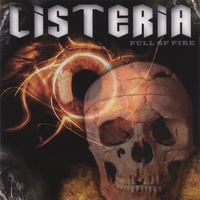That safety is always going off. We won’t get caught. No one got sick yesterday, so there’s a greater chance no one will get sick today.
 These basics of the human psyche continue to undermine tragedies from Bhopal to BP to the Challenger and food safety.
These basics of the human psyche continue to undermine tragedies from Bhopal to BP to the Challenger and food safety.
But with all the toys and technology, you’ll be found out – so act accordingly, even if decent humanity is not enough against the directive of profit.
What’s going on in Spain is strikingly similar to what happened in New Zealand in 2012. More about that later.
In Aug. 2019, an outbreak of listeriosis in Spain was detected and reported to the World Health Organization (WHO) on Aug. 16, 2019.
To date, three people have died and more than 200 have been sickened from Listeria linked to chilled roasted pork meat products manufactured in southern Spain by Seville-based Magrudis Company and sold under the brand name La Mechá.
James Warren of EuroWeekly reports today that according to sources from Seville City Council and the Ministry of Health, the Laboratorios Microal sounded the alarm on February 18, 2019 after samples of the shredded meat product were sent to them for evaluation.
Mariano Barroso, the manager of the quality control and research at Microal, said that of the two samples that were submitted, one came back as positive.
 A further test to determine the level of contamination was requested by the laboratory but the food manufacturer refused to agree to the tests.
A further test to determine the level of contamination was requested by the laboratory but the food manufacturer refused to agree to the tests.
Barrosco went on to clarify that the company did not inform the authorities as “in their line of work it is common to find forms of bacteria. It is the role of the manufacturer to remove the product from its production lines.”
In July 2012, a meat processor, its director and an employee have admitted selling Listeria-contaminated meat to the Hawke’s Bay Hospital in New Zealand and omitting to provide test results showing meat had tested positive.
The Hawke’s Bay District Health Board discovered cold ready to eat meats supplied by the company was contaminated in July 2012, after a number of Listeria cases had been linked to the hospital kitchen.
The outbreak claimed the life of 68-year-old Patricia Hutchinson on June 9 that year, and contributed to the death of an 81-year-old woman on July 9. Two other people were infected.
When the health board discovered a link between the infections and the hospital kitchen it sent 62 unopened plastic pouches of Bay Cuisine meat products to ESR for testing. All the pouches were found to contain Listeria.
A summary of facts complied by the Ministry for Primary Industries said the company had the contract to supply the hospital since 2002.
The summary states that on July 9, 2012 the DHB requested copies of all test results Bay Cuisine had carried out for Listeria. Production manager Christopher Mackie replied by telling the DHB a batch of corned silverside had tested negative for Listeria, when in fact it had tested “presumptive positive”.
The following day an officer from the Ministry, investigating the Listeria cases at the hospital, requested test results. Mackie sent these on July 13 but again omitted reports showing that some products had tested “presumptive positive”.
But analysis of cellphone text messages between MacKie and company director Garth Wise show that on the evening of July 12 Wise had sent a text to Mackie suggesting that he “hold back the presumptive listeria ones [results] as there is only 3 or 4 of them and we just send the good”.
A subsequent search of the Bay Cuisine premises by the Ministry found the company had not provided the original, correct spreadsheet to the Ministry. This spreadsheet showed positive Listeria tests for meat products on June 18 and July 10.
In 2009, the operator of a yakiniku barbecue restaurant chain linked to four deaths and 70 illnesses from E. coli O111 in raw beef in Japan admitted it had not tested raw meat served at its outlets for bacteria, as required by the health ministry.
“We’d never had a positive result [from a bacteria test], not once. So we assumed our meat would always be bacteria-free.”
Same story, varying locales.
